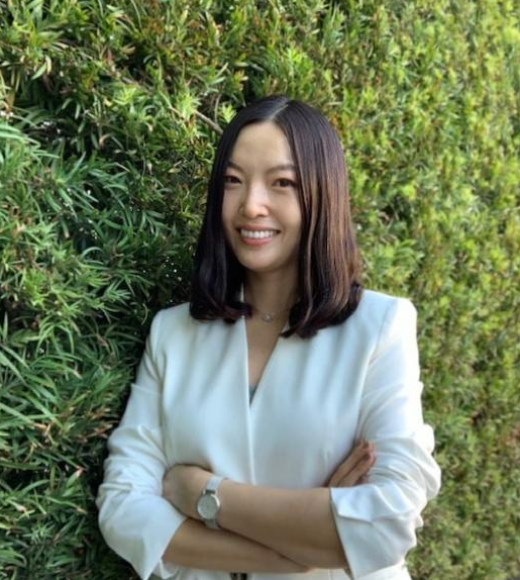
Position Title
Assistant Professor of Asian American Studies
Research Interests
globalization, critical race theory, inequality, transnationalism and social movement, comparative ethnic studies, critical Korean studies
Profile
Ga Young Chung is an Assistant Professor of Asian American Studies affiliated with the Cultural Studies, Human Rights Studies, and the School of Education. In her research, she examines the surge of dislocation, precarity, and (im)mobility in the era of uneven globalization. Centering on political activism and resistance of undocumented migrants, she unpacks how the meaning of citizenship is dismantled, rearticulated, and reassembled in the Asia-Pacific. Informed by transdisciplinary insights from Comparative Ethnic Studies, Critical Korean Studies, Youth Studies, and Transnational Migration Studies, her work is dedicated to expanding the field of Asian American Studies.
Chung has various ongoing research projects. She studies undocumented Korean immigrants’ gendered participation in the Military Accessions Vital to the National Interest (MAVNI) program, focusing on the un-ending Cold War, militarized citizenship, and masculinity. She is also conducting a longitudinal study, which she initially embarked on in 2007 (Chung 2009), of undocumented Mongolian youth and their circular migration among Mongolia, South Korea, and the United States. Lastly, as a critical education scholar, her scholarship is grounded in where she is located – the university. She is investigating the new racialization of Asian student-migrants, so-called "international" students, and its impact on the other marginalized student bodies in neoliberal U.S. higher education. Chung is co-leading Asian American Seed Stewards Lab and co-investigator of Resilient Academics: Re-imagining Academic Horizons, sponsored by Universitas 21 and “Race and Gender: Theorizing the New Racialization of the Asian Migrants in South Korea,” funded by the National Research Foundation of Korea.
Currently, she serves as a member of the Critic’s Choice Book Award Selection Committee at the American Educational Studies Association (AESA) and a board member at the National Korean American Service and Education Consortium (NAKASEC) and the Education Justice Project (EJP). Chung received her Ph.D. in Education Policy Studies (Global Studies in Education) with a graduate minor in Asian American Studies at the University of Illinois at Urbana-Champaign (2019), and she obtained her M.A. and B.A. in Sociology from Yonsei University in South Korea.
Publications
- “An Ambivalent Magic: Undocumented Asian Immigrants and Racialized ‘Illegality’ in the US Imperial Project.” (2022) Amerasia Journal, 47(2): 267-282.
- “Dismantling the ‘Undocumented Korean Box’: Race, Education, and Undocumented Korean Immigrant Activism for Liberation." (2022) In Diane C. Fujino & Robyn Magalit Rodriguez (Ed.), Contemporary Asian American Activism: Building Movements for Liberation. University of Washington Press.
- "COVID-19 and the Status of Undocumented Korean Immigrants in the New York Region." (2022) New York: Minkwon Center for Community Action.
- “Teaching Ethnic Studies Remotely Amid Global Pandemic: Rise of Xenophobia, Black Lives Matter, and Pedagogy for Liberation.” (2021) American Educational History Journal, 33-40.
- "Mirror of Hate: Atlanta Shootings and the Names We Should Call." (2021) March 24, 2021. Changbi: South Korea.
- “A Critical Community Autoethnography of Place and Belonging by Ph.D. International Female Student-Scholar-Activists in the U.S.” (2019) International Journal of Critical Pedagogy, 9(2). (Co-authored with Zilonka, R., Carvajal, N., and Cai, X.)
- “Divergent Paths toward Militarized Citizenship: The “Unending” Cold War, Transnational Space of Citizenship, and International Korean Male Students.” (2018) Korea Journal, 58(3): 76-101. (Co-authored with Choi, HJ)
- “At the Crossroads of Change: Deferred Action for Childhood Arrivals, Undocumented Korean Americans’ Political Participation, and Upcoming Challenges.” (2017) Harvard Journal of Asian American Policy Review, 27: 67-73.
- “Undocumented Korean Immigrant Youth Activists in the United States and the Politics of Resistance.” (2017) In Moon Young Cho (Ed.), Hell-Chosun In and Out: Anthropological Research on the Global Mobility of South Korean Youth. Seoul, South Korea: Noolmin.
- “Makeshift Multiculturalism: The Transformation of Elementary School Teacher Training.” (2015) In John Lie (Ed.), Multiethnic Korea?: Multiculturalism, Migration, and Peoplehood Diversity in Contemporary South Korea. Berkeley, CA: University of California Press. (Co-authored with Abelmann, N., et al.)
- Undocumented Asian Migrant Youth in South Korea. (2011) Seoul, Korea: Samchang Press. (Co-authored with Kim, D. et al.)
- “Undocumented Children of Foreign Migrant Workers in South Korea.” (2011) In Minoru, I., Chen, G. & Shunya, Y. (Eds.), Reading Asia through Cultural Studies. Tokyo, Japan: SericaShobo.
- “Invisible Children in South Korea: The Adaptive Efforts of Undocumented Mongolian Youth and Their Challenges.” (2009) Korean Journal of Social Issues. 18(2): 9-44.
Awards & Honors
2022 DHI Network-Collaboration Award, Davis Humanities Institute
2021 Outstanding Achievement and Leadership in Public Scholarship, UC Davis
2020 Diversity Scholar, National Center for Institutional Diversity, University of Michigan
2018 Teachers Ranked as Excellent, Center for Innovation in Teaching & Learning, University of Illinois
2017 Teachers Ranked as Excellent, Center for Innovation in Teaching & Learning, University of Illinois
2017 Korean Studies Dissertation Workshop Fellow, Social Science Research Council
2016 Graduate Research Fellowship, Korean American Scholarship Foundation
2016 Humanities, Arts and Social Sciences Dissertation Research Award, University of Illinois
2015 Jeffrey S. Tanaka Research Award, University of Illinois
2014 HASTAC Scholar, Humanities, Arts, Science, and Technology Alliance and Collaboratory
2009 Best Paper Award for Social Research, Korea Social Research Center
2008 Award of Honorary Mention for Best Thesis Award, Yonsei University, South Korea
2008 Outstanding Graduate Student Thesis Award, Korea Institute for Future Strategies